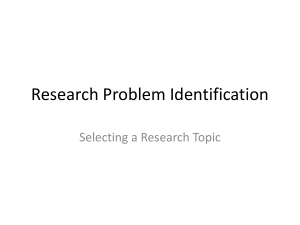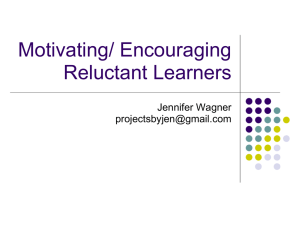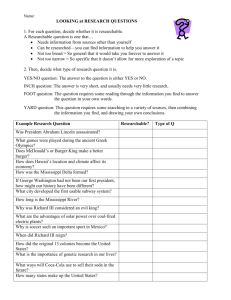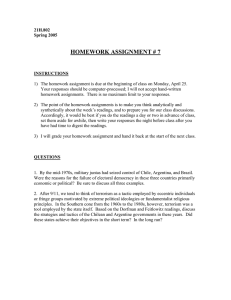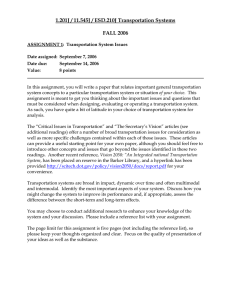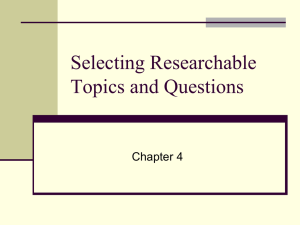Crafting Research Questions Class Participation Instruction 1
advertisement
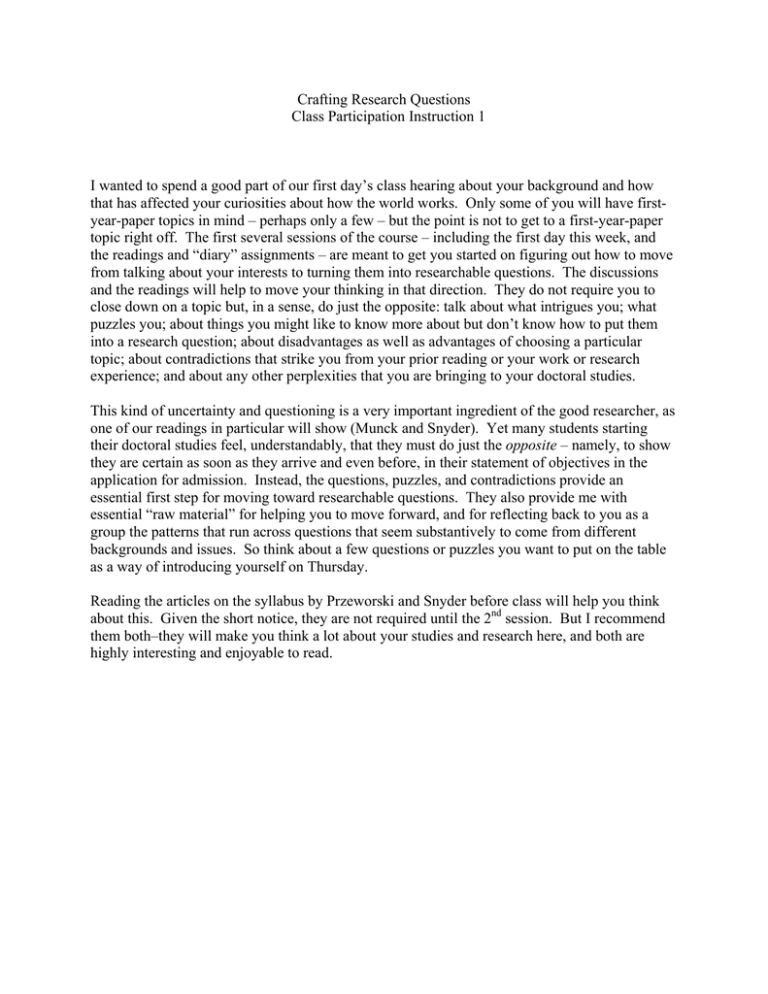
Crafting Research Questions Class Participation Instruction 1 I wanted to spend a good part of our first day’s class hearing about your background and how that has affected your curiosities about how the world works. Only some of you will have firstyear-paper topics in mind – perhaps only a few – but the point is not to get to a first-year-paper topic right off. The first several sessions of the course – including the first day this week, and the readings and “diary” assignments – are meant to get you started on figuring out how to move from talking about your interests to turning them into researchable questions. The discussions and the readings will help to move your thinking in that direction. They do not require you to close down on a topic but, in a sense, do just the opposite: talk about what intrigues you; what puzzles you; about things you might like to know more about but don’t know how to put them into a research question; about disadvantages as well as advantages of choosing a particular topic; about contradictions that strike you from your prior reading or your work or research experience; and about any other perplexities that you are bringing to your doctoral studies. This kind of uncertainty and questioning is a very important ingredient of the good researcher, as one of our readings in particular will show (Munck and Snyder). Yet many students starting their doctoral studies feel, understandably, that they must do just the opposite – namely, to show they are certain as soon as they arrive and even before, in their statement of objectives in the application for admission. Instead, the questions, puzzles, and contradictions provide an essential first step for moving toward researchable questions. They also provide me with essential “raw material” for helping you to move forward, and for reflecting back to you as a group the patterns that run across questions that seem substantively to come from different backgrounds and issues. So think about a few questions or puzzles you want to put on the table as a way of introducing yourself on Thursday. Reading the articles on the syllabus by Przeworski and Snyder before class will help you think about this. Given the short notice, they are not required until the 2nd session. But I recommend them both–they will make you think a lot about your studies and research here, and both are highly interesting and enjoyable to read.
